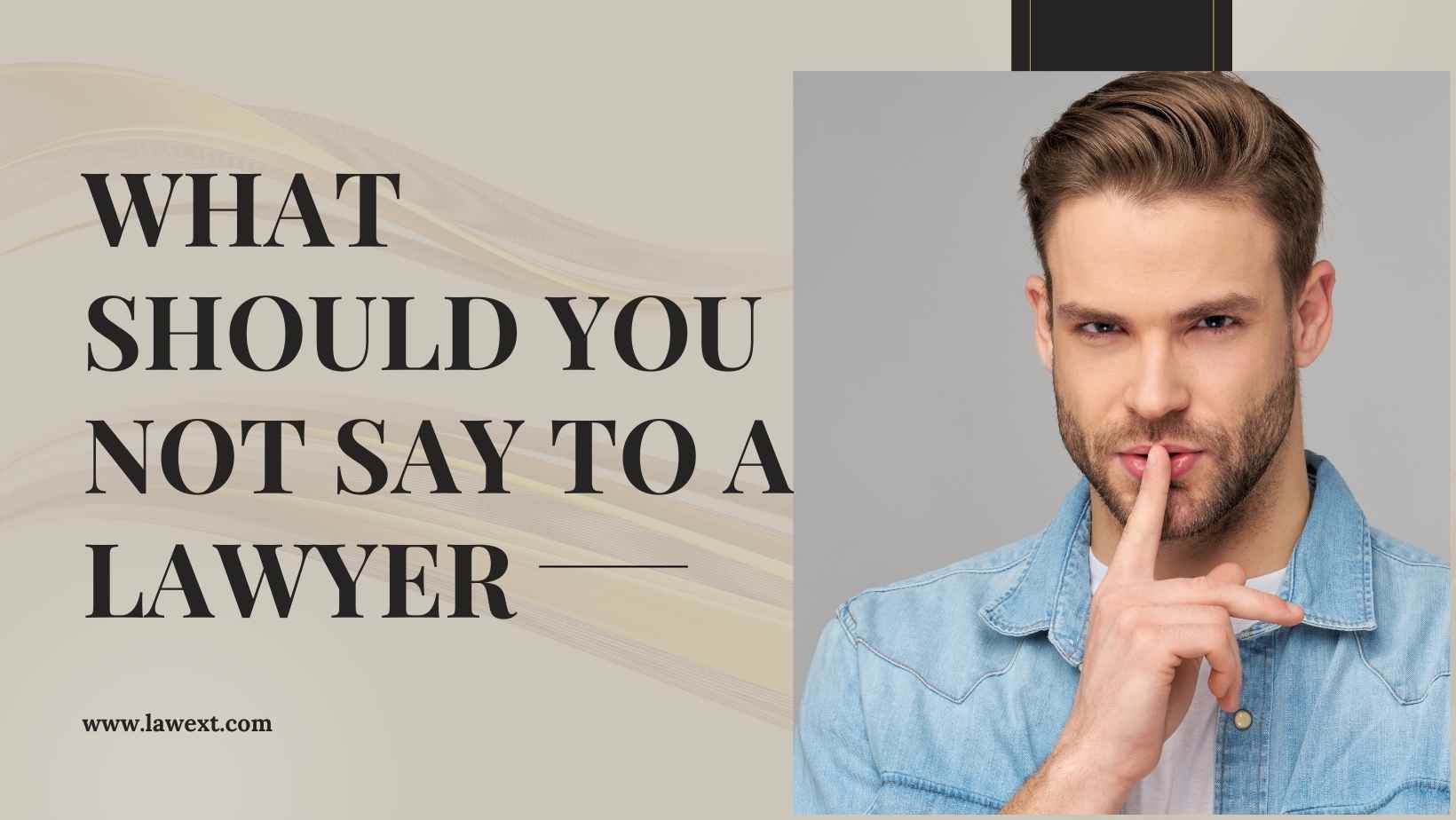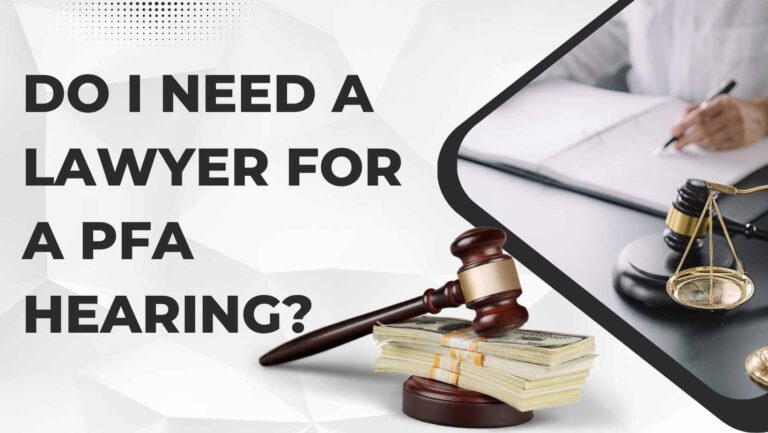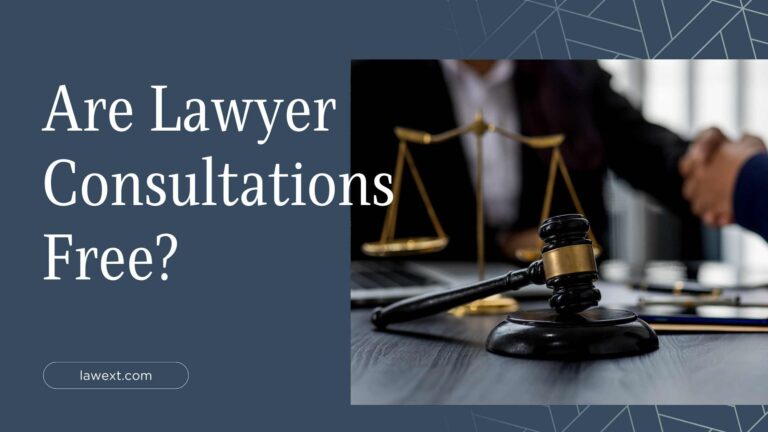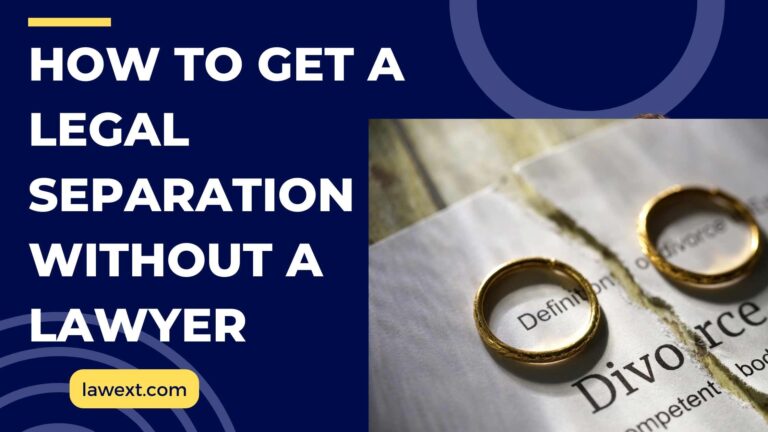What Should You Not Say to a Lawyer?

What not to say to a lawyer: Avoid making self-incriminating statements during the conversation. When seeking legal advice, it is crucial to choose your words wisely and refrain from uttering anything that could harm your case.
A lawyer plays a vital role in providing guidance and support, so it is important to maintain open and honest communication. However, there are certain statements that can potentially jeopardize your legal position. This article aims to shed light on what you should not say to a lawyer, highlighting the importance of protecting your own interests and ensuring a strong legal defense.
Common Mistakes To Avoid
When seeking legal advice or working with a lawyer, it is crucial to be mindful of the things you say. Certain statements may have unintended consequences or derail the positive working relationship. In this section, we will discuss the common mistakes that you should avoid when communicating with a lawyer.
Making Assumptions
Making assumptions can lead to misunderstandings and miscommunications. It is essential to remember that every legal situation is unique, and what may apply to one case may not necessarily apply to another. Avoid assuming that your lawyer knows all the details of your case or that their advice will be the same as someone else you know. Instead, provide all relevant information and allow the lawyer to assess and decide the best course of action for your particular circumstances.
Sharing Too Much Information
While it is essential to provide your lawyer with all necessary information to handle your case effectively, be cautious about sharing unnecessary or sensitive details that may not directly impact your legal matter. Remember that lawyers are bound by strict confidentiality rules, but it’s still better to exercise discretion. Share only the relevant facts and documentation necessary for them to defend your rights or pursue your legal interests.
Giving Legal Advice
Lawyers spend years studying and gaining experience in their field to provide accurate legal advice. As a client or someone seeking their guidance, it is not your place to give legal advice or dictate how they handle your case. Respect their expertise and rely on their professional judgment to guide you through the legal process. While it’s okay to engage in discussions and ask questions, avoid those instances where you may inadvertently cross the line.
Questioning Their Ability
It is natural to have questions and concerns about your case, but avoid questioning your lawyer’s ability or competence outright. Challenging their experience or doubting their abilities can harm the attorney-client relationship and hinder progress in your legal matter. Instead, if you have concerns or questions, address them openly and respectfully, allowing your lawyer the opportunity to provide the necessary explanations and reassurances.
Being Disrespectful
The legal process can be stressful, but it is crucial to maintain a respectful and professional demeanor when interacting with your lawyer. Avoid being disrespectful, confrontational, or using offensive language. Remember that your lawyer is there to support and guide you, so treating them with disrespect can impede their ability to effectively advocate for your rights. Communication is key, and maintaining a respectful dialogue is essential for a productive attorney-client relationship.

Credit: thomaslawaz.com
Sensitive Topics To Steer Clear Of
When interacting with a lawyer, it’s crucial to maintain a level of professionalism and avoid discussing certain topics that may cause discomfort or conflict. Here are some sensitive topics to steer clear of when communicating with a lawyer:
Personal Opinions On The Case
Avoid expressing personal opinions on the case to the lawyer. Their role is to provide legal guidance based on facts and evidence, not personal viewpoints.
Unrelated Legal Questions
Steer clear of asking the lawyer questions unrelated to your specific legal matter. This ensures that the conversation remains focused and productive.
Ethnic, Racial, Or Cultural Issues
Avoid delving into discussions about ethnic, racial, or cultural issues unless they directly relate to the legal case at hand. It’s essential to maintain sensitivity and respect in all conversations.
Unprofessional Language
Avoid using unprofessional language when communicating with a lawyer. Maintaining a respectful and courteous tone fosters a constructive and professional relationship.
Political Or Religious Discussions
Steer clear of engaging in political or religious discussions with your lawyer. Focusing on the legal matter at hand ensures that the conversation remains focused and on track.
Tips For Effective Communication
Good communication is essential when working with a lawyer. It helps ensure that you and your lawyer are on the same page and can work together to achieve the best outcome for your case. Here are some important tips to keep in mind for effective communication:
Be Honest And Transparent
Honesty is paramount when communicating with your lawyer. Be open and transparent about all the details of your case. Your lawyer needs to have all the relevant information to provide you with the best legal advice and representation.
Listen Carefully
When communicating with your lawyer, it is crucial to listen carefully to what they have to say. Pay attention to the advice, instructions, and explanations they provide. Clear communication requires active listening on your part.
Ask Relevant Questions
If there is something you don’t understand or need further clarification on, don’t hesitate to ask your lawyer relevant questions. This will help you get a better understanding of your case and make informed decisions.
Respect Boundaries
Respecting boundaries is vital in maintaining a productive attorney-client relationship. Avoid prying into your lawyer’s personal life and instead focus on discussing matters related to your case. Remember, while your lawyer is there to help you, they also have other clients and responsibilities.
Maintain Professionalism
Throughout your interactions with your lawyer, it is essential to maintain professionalism. This includes being polite, using appropriate language, and refraining from making disrespectful comments. Professionalism fosters a positive working relationship and cultivates better communication between you and your lawyer.
Conclusion
Communicating effectively with your lawyer is key. Avoid sharing excessive details or making assumptions. Always stay honest and open, but be cautious of the information you disclose. Respect their professional expertise and keep conversations focused on the legal matter at hand.
By following these guidelines, you can ensure a constructive and productive relationship with your lawyer.
Amelia Justiceberg, a distinguished legal luminary, thrives on the intersection of empathy and legal acumen. As a prominent family law attorney, she orchestrates compassionate resolutions amidst complex dynamics. Justiceberg's courtroom finesse and dedication to fairness define her practice. Beyond litigation, she ardently advocates for social justice, solidifying her reputation as an influential force in the legal landscape.






